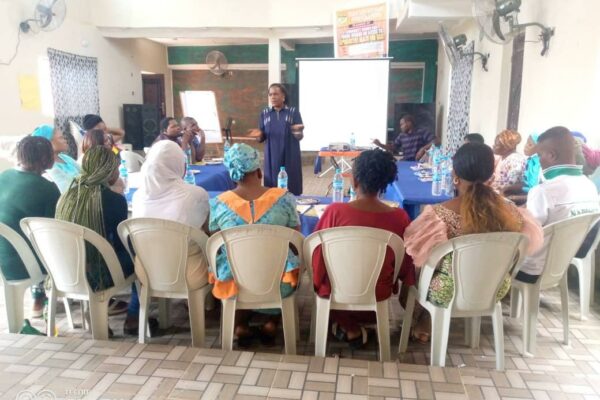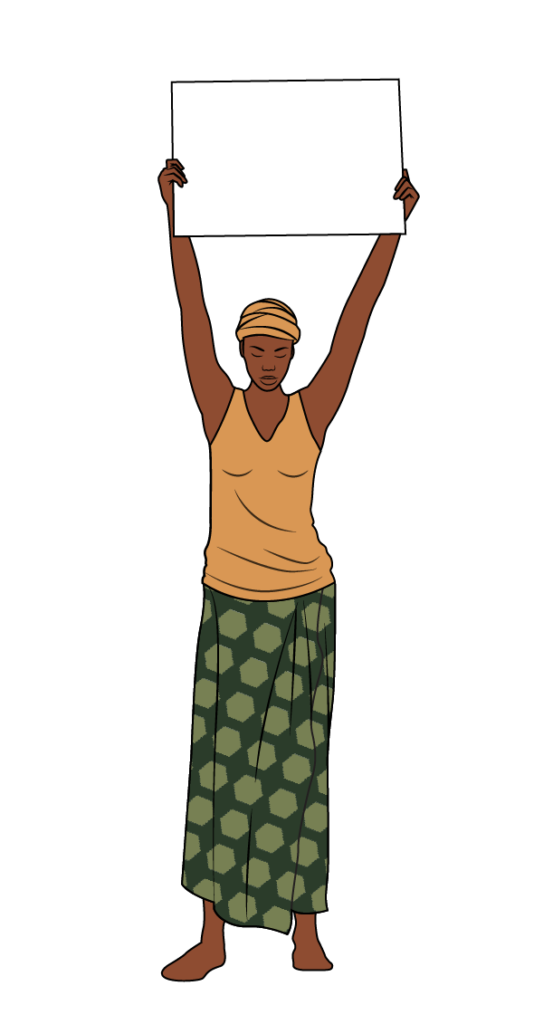Eshet Children and Youth Development Organization is a local civil society organization based in Addis Ababa, Ethiopia. The organization is primarily dedicated to contributing to the development and well-being of children, youth, women, and other disadvantaged groups of people including people with disability. The organization implements various developmental projects by focusing on the social problems of the grass root community in Ethiopia. In addition, ECYDO works on preventing the spread of HIV/AIDS and other sexually transmitted diseases by creating awareness in the communities. Moreover, the organization works on Sexual and Reproductive Health Rights of women and girls, Family Planning as well as dissemination of women and girls’ rights information, and awareness on related issues. Because the organization is contributing to fighting against harmful traditional practices including female genital mutilation, abduction, and unsafe abortion practices, the condition of the sexual and reproductive health of women and girls in the region is improving.
As usual, Eshet Children and Youth Development Organization has launched a sexual and reproductive health project in collaboration with MAMA Network in Arsi Zone, Ethiopia. The project activities involve stakeholders’ workshops, SRH Doulas and medical professionals training, and community outreach. The project plan was sketched out and the activities were undertaken in a good manner.
Activities:
- Stakeholders’ Workshops
After undertaking the community research and designing the project, Eshet Children and Youth Development Organization signed the project agreement with MAMA Network for strong collaboration, good partnership, and joint support and implement the project. As per our project plan, the first activity that is the workshop of relevant stakeholders was undertaken. In our plan, 2 stakeholders’ workshops were undergone in Tiyo District and Digeluna Tijo District of Arsi Zone, Ethiopia. The members of SRH doulas candidates, the leaders of the health office of the districts, directors/heads of 5 health centers, pharmacists, the leaders of the women, children, and youth affairs office, and administrative authorities participated in the workshop.
Events carried out in the workshop include launching and familiarization of the project, advocacy, strengthening networking and collaboration, discussion on the better strategies of increasing access to SRHr services , and engaging the government partners in the project for better success.
- Selection of the SRH Doulas
The community Sexual and Reproductive Health Doulas are the main pillars of this project. Accordingly, about 50 sexual and reproductive health doulas were selected from two districts jointly by the district’s offices of women, children, and youth affairs and Eshet Children and Youth Development Organization. These are Tiyo District with 21 kebeles (villages) and Digelunna Tijo District which has 28 kebeles (villages). In each of the two districts, 25 sexual and reproductive health doulas have been selected. Out of the 50 SRH doulas, 15 of them are delalas (mediators) i.e. those who push women and girls towards harmful traditional practices. The selection criteria include that the candidate:
- Must be a female
- Must complete at least 10th grade
- Has a little bit hint about sexual and reproductive health or family planning
- An active speaker and good at communication
- Sociable
- Training of the SRH doulas
We use professional trainers from Arsi University. After selecting and registering 50 community sexual and reproductive health doulas (non-medical professional doulas) from 2 districts, we have given them comprehensive training for 3 days by our trainers. The training was conducted in 2 groups. The first group comprising 25 sexual and reproductive health doulas attended the training at Asella Town Administration whereas the second group comprising the same number received the training at Sagure Town Administration with the aim of capacity building.
The Community Sexual and Reproductive Health Doulas training was given on important topics including signs of pregnancy, unwanted/unplanned pregnancy, medical abortion, contraceptives, procedures, and post-abortion family planning by the professional from Arsi University named Solomon Tejineh (Assistant Prof.). The key points of the training include the types and ways of taking the pills (misoprostol and mifepristone), doses, procedures, symptoms, contraindications, etc. It also includes a self-managed abortion.
The assessment of the trainees was conducted by pretest and post-test. The results indicate that their knowledge about medical abortion increased by more than 50%. The sexual and reproductive health doulas will assist and link the women and girls to the health centers to facilitate access to medical abortion and related services. And at the end of the training, they were given the reporting format for their community-based services. The reports will be collected from the SRH doulas every 1 or 2 months.
- Information leaflet and community outreach
The information leaflets were prepared in English, Amharic, and Oromiffa. The leaflets explain the harmful traditional practices, the danger (risk) of unsafe abortion, the safety of accessing medical abortion, and related issues. In addition, 4 community outreach programs were carried out. The outreach involves edutainment including teaching dramas, short plays, poems, and music. During the outreach program, the information leaflets were distributed to the participants in the languages they needed. About 500 brochures and leaflets were distributed to the participants. Through the community outreach programs we have reached more than 1,400 people out of which 13 are commercial sex workers, 19 are survivors of violence, 5 are internally displaced people, 10 are people living with HIV/AIDS, 7 are persons with disability, and about 22 are single moms out of which the majorities are younger.
- Selection of Health Professionals for training
Out of the 9 health centers found in the 2 districts, 5 health centers were selected jointly by the head of Arsi Zone and the heads of the districts health offices and Eshet Children and Youth Development Organization. The selected health centers are:
- Gonde Health Center (in Tiyo District)
- Golja Health Center (in Tiyo District)
- Tijo Health Center (in Digeluna Tijo District)
- Sagure Health Center (in Digeluna Tijo District)
- Digelu Health Center (in Digeluna Tijo District)
Each of the health centers is required to present 3 relevant health professionals for the training.
- The Health Professionals’ training
According to the plan of our project, 15 health professionals are selected from 5 health centers and receive the training which makes about 15 professionals. However, through communication and discussion with the heads of the districts’ health offices, we have participated in 17 professionals with the same budget and time. We have included 2 more health staff in the training from 2 health centers namely Arrabbi Health Center and Hofi Health Center. And about 17 health professionals received comprehensive training on medical abortion including contraceptives, the service procedures, counseling, treatment for severe contraindication, family planning, and related issues. The training was delivered by an expert woman from Arsi University called Mamit Mamo under the supervision of ECYDO.
Achievements:
Throughout the project, there are good achievements. These include:
- A strong network and collaboration on access to SRHR services including medical abortion were created among the relevant stakeholders including the government offices.
- People’s outlook and awareness of medical abortion were improved through community outreaches and information leaflets
- Government and community parts start to engage in enhancing access to medical abortion
- Advocacy on strategy improvement on access to medical abortion
- 40 stakeholders took part in the sessions and pledged to enhance access to medical abortion as opposed to unsafe abortion.
- 50 Sexual and reproductive health doulas received a good quality capacity development training
- 17 health professionals have improved their skills specifically in medical abortion
- The percentage of people having lower awareness decreased from 70% to 30% in a random end-line survey.
- Access to medical abortion is increased from 20% to 35%
- The needy women and girls started to receive the necessary services (the medical abortion information, access, and assistance including referral for safe abortion)
- The health centers start to give more focus on enhancing access to medical abortion
- High impact on the communities’ traditional beliefs and level of understanding of the safety of medical abortion
- Women and girls start to be linked to the health centers for information and medical abortion services through the community sexual and reproductive health doulas
Challenges:
Challenges during the implementation of the project include shortage of the budget, short duration of the training, absence of office or center of organizing activities for the SRH doulas, absence of transportation service, the higher influence of the traditional beliefs towards women and girls, Covid-19 and long lasted Harmful Traditional Practices(HTP) .
Opportunities:
The opportunities include the willingness of the government stakeholders and officers, baseline data collection for measuring the changes, the secured environment in our project area as compared to other parts of Ethiopia, etc.
You can learn more about ECYDO work on their website: ECYDO | Home


